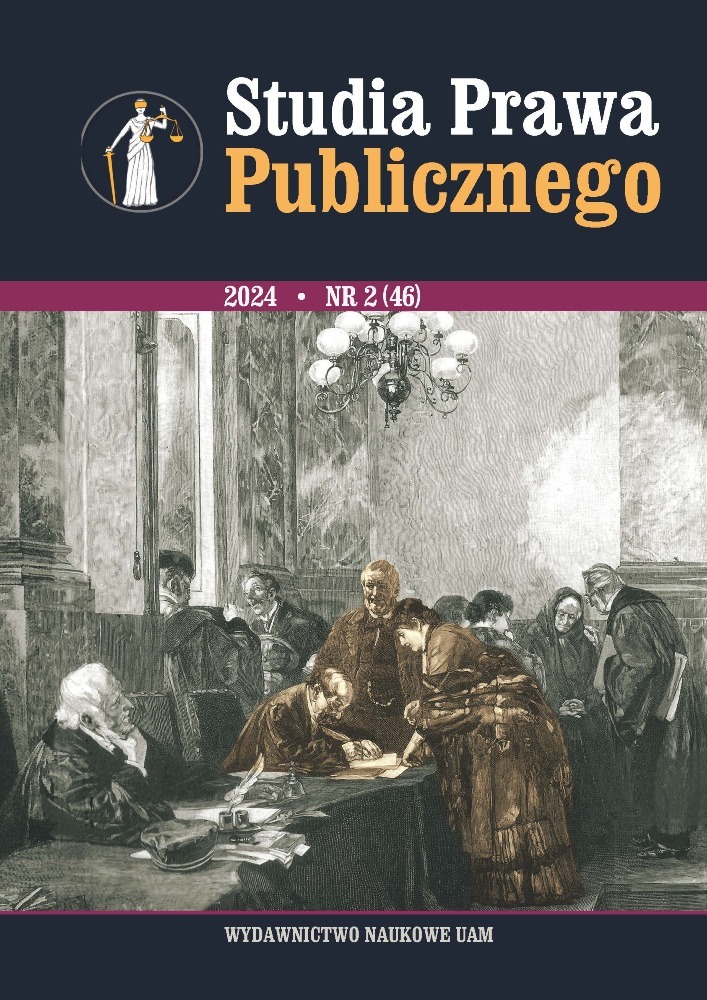Abstrakt
The article focuses on the role of state purchasing policy as the primary aim of public procurement in Poland, considering its key aspects and impact on various spheres of economic activity. It presents detailed analyses of strategic objectives, legal regulations, and implementation practices, demonstrating the complexity and significance of this process for the way the public procurement market functions. The main research objective of the article is to understand the role that state purchasing policy plays in shaping the structure of the public procurement market and its impact on the efficiency of public expenditure and the economic development of the country. Through the analysis of empirical data and observations gathered from various sectors of the economy, the article seeks to illustrate how effective purchasing policy can support market competitiveness, fostering innovation and entrepreneurship development. The article analyzes the state purchasing policy as a key goal of public procurement, and presents its impact on the economy, competitiveness and sustainable development, emphasizing the efficiency, transparency and innovation of procedures.
However, the article not only highlights the positive aspects of purchasing policy but also identifies challenges associated with it. Among them are combating corruption, ensuring the transparency of processes, and promoting fair competition. The findings presented may serve as a valuable source of information for political decision-makers and practitioners involved in public procurement management, aiming to improve the Polish public procurement system in the context of changing economic and social trends on the international stage.
Bibliografia
Bobowski S., Gola J., Pomiar efektywności rynku zamówień publicznych – przyczynek teoretyczny do badań ekonomicznych, „Ekonomia XXI Wieku” 2017, nr 2, s. 9–23. DOI: https://doi.org/10.15611/e21.2017.2.01
Borowicz A., Aspekty ekonomiczne i rynkowe nowego Prawa zamówień publicznych, „Zamówienia Publiczne. DORADCA” 2021, nr 1, Legalis.
Build America Buy America, Office of Acquisition Management, https://www.com-merce.gov/oam/build-america-buy-america (dostęp: 13 VI 2024).
Hajduk A., Planowanie zamówień jako narzędzie do efektywnego wydatkowania środków publicznych, „Przegląd Prawno-Ekonomiczny” 2021, nr 1, s. 99–113. DOI: https://doi.org/10.31743/ppe.10658
Kardas M., Zamówienia publiczne jako instrument polityki innowacyjnej, „Zarządzanie Publiczne” 2016, nr 1(35), s. 32–46. DOI: https://doi.org/10.15678/ZP.2016.35.1.03
Klich G., Zasada przejrzystości postępowania o udzielenia zamówienia publicznego, „Prace Naukowe Uniwersytetu Ekonomicznego we Wrocławiu” 2017, nr 497, s. 73–87. DOI: https://doi.org/10.15611/pn.2017.497.05
Koncepcja polityki zakupowej (streszczenie), Związek Pracodawców Gospodarki Odpadami, https://www.zpgo.pl/images/Streszczenie_polityki_zakupowej_panstwa.pdf (dostęp: 8 IX 2020).
Kuźma K., Hartung W., Instrument do prowadzenia polityki zakupowej państwa, „Gazeta Prawna” z 6 VIII 2019.
Lotko E., Zasada efektywność a konkurencyjność polskiego rynku zamówień publicznych,„Przegląd Ustawodawstwa Gospodarczego” 2021, nr 11, s. 39–45. DOI: https://doi.org/10.33226/0137-5490.2021.11.6
Mituś A., Cyrkularne zamówienia publiczne jako instrument realizacji celów środowiskowych, w: Dziś i jutro w zamówieniach publicznych, pod red. M. Lemmonier, H. Nowaka, Warszawa 2019, s. 44–54.
Nowicki P., Aksjologia prawa zamówień publicznych. Pomiędzy efektywnością ekonomiczną a instrumentalizacją, Toruń 2019.
Nowicki P., Strategiczne zamówienia publiczne jako instrument polityki rozwoju, „Ruch Prawniczy Ekonomiczny i Socjologiczny” 2023, nr 85(1), s. 27–40. DOI: https://doi.org/10.14746/rpeis.2023.85.1.04
Wieczerzyńska B., Efektywność zamówień publicznych w wymiarze prawnym, ekonomicznym i społecznym, „Rocznik Administracji Publicznej” 2016, nr 2, s. 558–570.
Zaborowski M., Cel i funkcje zamówień publicznych, „Optimum. Economic Studies” 2019, nr 3(97), s. 151–163. DOI: https://doi.org/10.15290/oes.2019.03.97.10
Licencja
Prawa autorskie (c) 2024 Agnieszka Marek-Bielawska

Utwór dostępny jest na licencji Creative Commons Uznanie autorstwa – Bez utworów zależnych 4.0 Międzynarodowe.

